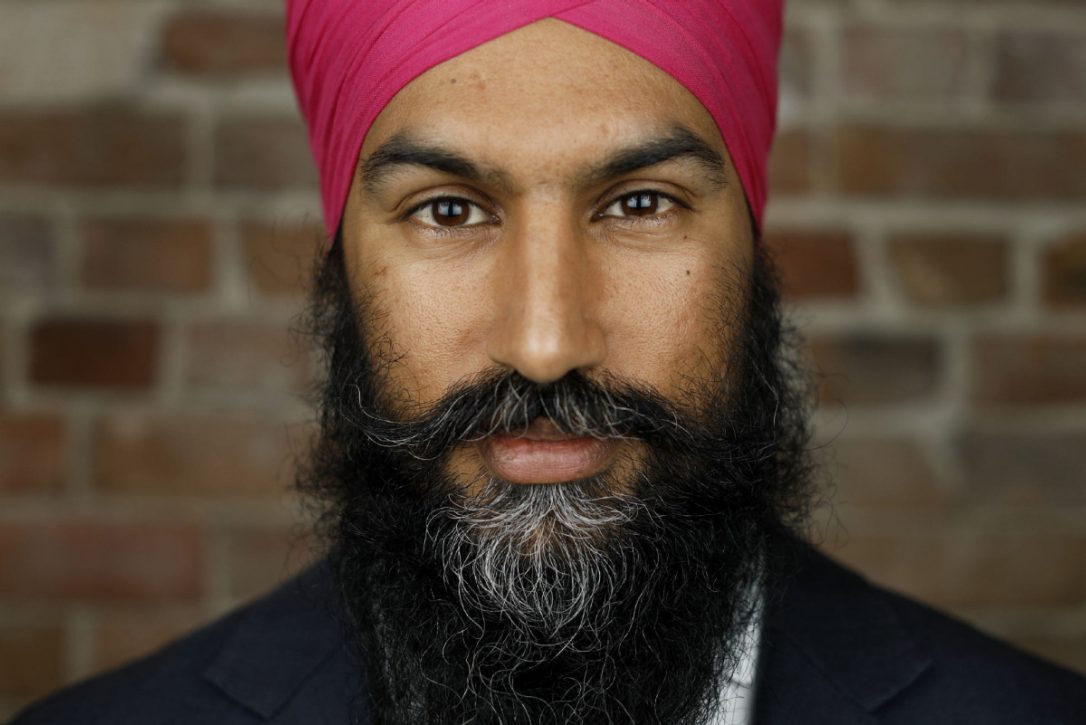For years now, progressive political parties in Canada have been blessed with one enduring electoral advantage. That of course, is the inevitable occurrence of at least one 'bozo eruption' from a right-of-center, conservative candidate disparaging about LGBTQ people in one way or another.
For instance, in 2004, Liberal Prime Minister Paul Martin was trailing Stephen Harper and the Conservatives in the final week of the campaign. That is until Conservative candidate Randy White gave an infamous interview, pledging that if elected, a Conservative government would defy the courts and reverse any action on same-sex marriage.
The Liberals wasted no time in stoking fear of a Conservative victory. Off went the alarm bells. Not only would homosexuals have their rights stolen from them, but the Charter itself would be trampled upon.
Sure enough, the strategy worked. And it helped ensure the Liberals returned to power, albeit in a minority government.
The strategy would work again, year later in Alberta.
During the 2012 provincial election, the right-leaning Wildrose Party was poised to form government. At least until Edmonton Wildrose candidate, Pastor Allan Hunsperger, gained infamy for one of his sermons, in which he preached that homosexuals would "suffer the rest of eternity in the lake of fire."
Then Alberta Premier Alison Redford might have identified as a Progressive Conservative. But by the way she campaigned, she clearly stole a page from the Liberal playbook. By demonizing the Wildrose for Hunsperger's homophobia, Redford rebounded in the polls and won a majority government.
However, this strategy has become less effective as of late. And the federal Liberals should take note. For in recent years, many card-carrying conservatives have strengthened their fortifications against attacks for being anti-LGBTQ.
In May 2016, a significant majority of Conservative party delegates voted to longer define marriage in their party's constitution as a union between one man and one woman. It took over a decade for the Conservative party as a whole to come around in genuine support for same-sex marriage. Still, it's better late than never.
Not only that, but conservatives have become more and more visible marching in pride parades.
Last month, Doug Ford marched in York Region Parade, flanked beside several of his beaming cabinet ministers. No, it wasn't Pride Toronto, which would have been the more fitting parade for the premier of Ontario. But still, there he was, Doug Ford himself.
Of course, simply marching in pride alone is unlikely to curry much favor amongst LGBTQ Canadians, who rightly expect more from their political leaders.
But the symbolism of Ford's presence is at least an improvement from a few years earlier, when he made disparaging comments about pride, "Do I condone men running down the middle of Yonge Street buck naked? Absolutely not."
He wasn't the only conservative to march this year. Saskatchewan Premier Scott Moe, similarly attended pride this summer. So too did Conservative Deputy Leader Lisa Raitt. The list goes on.
Alas, progress has a tendency to move one step forward and two steps back.
After all, Doug Ford's crusade against Kathleen Wynne's updated sex-ed curriculum never did pass the homophobic smell test.
Nor did Jason Kenney's over-heated rhetoric on gay-straight alliances. Or Kenney's role in helping overturn a law in San Francisco, thereby denying gay men afflicted with AIDS to receive hospital visits from their loved ones. His refusal to apologize is utterly shameful.
Further troubling, was that both men secured solid majorities, no matter the outcry from many in the LGBTQ community and their progressive political allies. In both cases, 'bozo eruptions' came not just from lowly party candidates, but from the very leaders themselves. And no amount of fear-mongering or condemnation was enough to sink their political fortunes.
Of course, conservatives are a diverse bunch, with many having been stalwart supporters of the community, years before the acceptance of LGBTQ peoples became as mainstream as it is today.
Not only that, but some conservatives have played key roles in the political evolution of LGBTQ rights. Roy McMurty, a lifelong Progressive Conservative, was the Chief Justice of the Ontario Court of Appeals who made the definitive ruling in favour of same-sex marriage back in 2003. The late Jim Prentice deserves mention too, for his principled 2005 vote in favour of same-sex marriage, along with fellow Conservative MP's James Moore and Gerald Keddy.
Regardless though, it is the federal Liberals who retain the high ground in the upcoming election. After all, Justin Trudeau is the first Canadian Prime Minister to both march in a Pride parade and appoint his own LGBTQ advisor. He has also delivered an apology, complete with compensation, to members of the LGBTQ community for the past injustices committed by the federal government. And the abstinence period for gay and bisexual men to donate blood has been further reduced to three months.
Unfortunately for Trudeau and the Liberals, maintaining the moral high ground on LGBTQ issues is no guarantee of success. One need only ask Kathleen Wynne. Or Rachel Notley.
Furthermore, as more and more conservatives march in pride and embrace same-sex marriage, the political potency of 'bozo eruptions' will only lessen.
Personally, I'm just looking forward to the day when not even a lingering doubt remains on the commitment for LGBTQ equality, from all of Canada's political parties.
Photo Credit: Toronto Star








